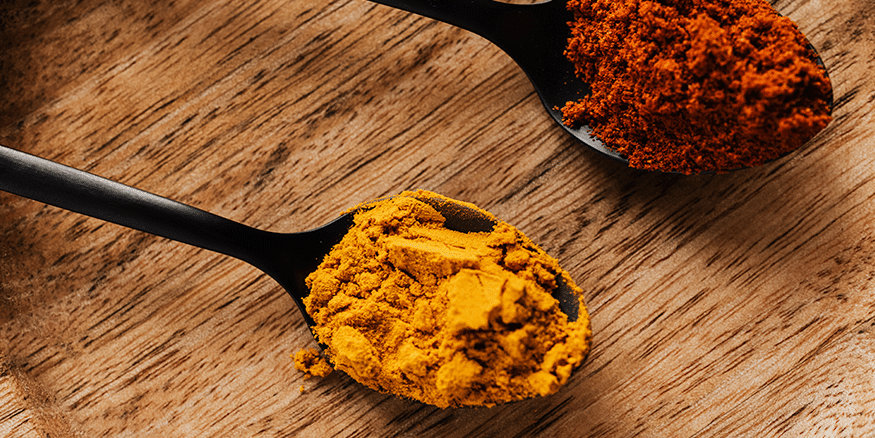
Add Spice to your Life
Cayenne Pepper
Go ahead. Shake that cayenne pepper all over you meal! Researchers in New Orleans have discovered that it can kill fungus and bacteria and may also have other health benefits.
From just one pound of cayenne peppers, 500 milligrams of a new substance, called CAY-1 was prepared and tested at the Agricultural Research Service. In laboratory tests, CAY-1 knocked out Candida albicans, a fungal organism that leads to thrush and other yeast infections; Pneumocystis carinii, which causes pneumonia and Aspergillus, a fungus, which plagues cotton crops and causes serious lung infections. Such infections pose real dangers for people with immune system problems. The cayenne pepper compound did not appear to cause problems for human cells.
A 2.6 microgram per millilitre dose cut C. albicans growth by 93 percent and was effective against some strains that current medications can’t seem to kill.
Early tests of the CAY-1 compound on human lung and cervical cells also look promising, because the compound does not appear to have a toxic effect, at least at the levels currently being used.
The researchers plan to determine how the compound works, test it further against human cells and then conduct preliminary tests on laboratory mice. They hope to test it on athlete’s foot too, and are even looking at a household application – killing mould on grout.
Curcumin
Laboratory experiments conducted in Singapore suggest that curcumin (Curcuma longa) – the active ingredient in turmeric that gives the spice its yellow colour – may act as an antioxidant that could possibly promote wound healing. Turmeric is a common ingredient in mustard, and in Indian food, including curry.
For centuries, people in India and other Asian countries used curcumin as a folk remedy for treating wounds, inflammation, and ulcers. There is laboratory evidence that it has both anti-inflammatory properties and antioxidants. Other studies suggest the spice can be protective against Alzheimer’s, may help in the fight against cancer, may be useful in inflammatory bowel disease, and may block the progression of multiple sclerosis.
In the wound study, laboratory-grown human skin cells were exposed to hydrogen peroxide, a potent oxidizing agent. Oxidation is a process where damaging free radical particles are generated. These particles can promote further damage to the tissue surrounding a wound. When curcumin was added to the skin culture, it minimized the affects of the hydrogen peroxide.
The researchers report that their main finding in this study is that curcumin has a strong antioxidant effect against hydrogen peroxide on skin cells in culture, which could explain, in part, the therapeutic properties of curcumin for wound healing. The next step is a clinical trial, and if that works and is proven safe, it could lead to curcumin becoming a registered medicine, but this is a long way off.
Researchers have found in the lab that curcumin can enhance the cancer-fighting power of treatment with TRAIL, a naturally occurring molecule that helps kill cancer cells. TRAIL stands for tumour necrosis factor-related apoptosis-inducing ligand.
In an experiment with human prostate cancer cells in a laboratory dish, the combination treatment killed off two to three times more cells than either treatment alone, according to a study released in April at the annual meeting of the American Association for Cancer Research in San Francisco, California.
By using these two agents – curcumin and TRAIL – up to 80% of cancer cells in the culture were killed. The next step is to see if the results with this experimental treatment combination can be reproduced in lab animals.
In research done in Nashville, Tennessee, and reported at the Experimental Biology 2002 conference in April, rats with an MS-like illness showed little or no signs of disease symptoms after being injected with curcumin, while animals without the treatment went on to severe paralysis.
In addition, in the fall of 2001, researchers at the University of California, Los Angeles reported that curcumin appeared to slow the progression of Alzheimer’s in mice.
Just how curcumin might work to thwart the progression of demyelinization in multiple sclerosis remains unclear. But the Nashville researchers believe it may interrupt the production of IL-12, a protein that plays a key role in signalling immune cells to launch their assault on the myelin sheath.
The work remains preliminary, and patients should follow their doctor’s advice when it comes to treating their disease. Still, adding a little spice to the diet couldn’t hurt, in fact, it just may help a lot.

